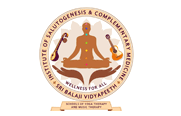About this Journal
About This Journal
This Journal intends to highlight yoga as a living philosophy relevant to many aspects and concerns of today’s world. By offering a bridge where philosophy, science, and practical application are integrated, positive change at the individual, interpersonal, and community-wide levels can be cultivated. Articles will be deeply rooted in foundational philosophies and practices of yoga while highlighting current scientific thought and practical application in social, environmental, education, or healthcare contexts. This journal strives to honor both modern empirical science and the traditional experiential methods of yoga science.
Aims and Scope
The Journal of Applied Yoga Studies examines theoretical frameworks and practical applications of yoga science and philosophy. The articles provide yoga scholars, professionals, and yoga enthusiasts, as well as those interested in the intersection of yoga in the social, environmental, educational, and healthcare contexts with theoretical and philosophical understandings and evidence-informed applications. This journal provides a forum for the philosophy, practical application, and clinical science of yoga to be discussed in a shared and collaborative space. This unification highlights yoga’s capacity to synthesize philosophy, science, and practical application in evidence-informed ways.
The Journal of Applied Yoga Studies acknowledges and values both the traditional experiential methods of yoga science and the modern scientific analysis of yoga. The editors of this journal recognize that the essence of yoga within the conceptual subtle body cannot be measured by the inherently perceptual methods of modern scientific analysis. While the pursuit to analyze and explain yoga in scientific terminology has been underway for over 100 years, its essence remains experiential and one that cannot be fully understood through modern scientific methods. Thus, the Journal of Applied Yoga Studies will highlight articles from varied perspectives including modern scientific analysis, experiential research, and theoretical concepts.
Contributions will include:
- Clearly stated perspective the article adopts - conceptual, scientific, or experiential. As such:
- Modern scientific statements will be supported by clinical research or case studies.
- Traditional yoga philosophical concepts will reference classical yoga scripture.
- Experiential observations in oral traditions of yoga will be stated as such.
- Anecdotal statements may be judiciously utilized if accompanied by a theoretical or scientific foundation.
- Submissions will include social, environmental, educational, political, science, healthcare, or other systemwide applications of yoga.
- Submissions based on yoga interventions will include the theoretical basis and foundation for the yoga intervention. This could include a critical and reflective analysis: a brief literature review on the subject, how the program was implemented, what worked, what didn’t work, the experience of both the researcher/teacher and subject/participant, and future recommendations and suggestions. Case Report submissions will acknowledge the traditions from which the practices were received as applicable.
- Authors who have published clinical results of yoga/mind-body research elsewhere may cite those studies and submit the philosophical and theoretical foundation underlying the interventions.
Please see the Submission Guidelines page for further information.
Journal Logo Design: Serenity Tedesco




